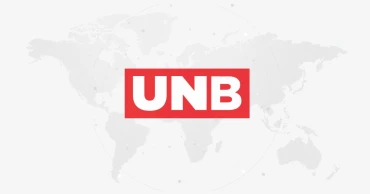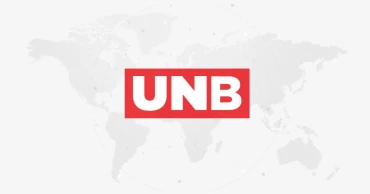Chin
Ignoring experts, China's sudden zero-COVID exit cost lives
When China suddenly scrapped onerous zero-COVID measures in December, the country wasn’t ready for a massive onslaught of cases, with hospitals turning away ambulances and crematoriums burning bodies around the clock.
Chinese state media claimed the decision to open up was based on “scientific analysis and shrewd calculation,” and “by no means impulsive." But in reality, China’s ruling Communist Party ignored repeated efforts by top medical experts to kickstart exit plans until it was too late, The Associated Press found.
Instead, the reopening came suddenly at the onset of winter, when the virus spreads most easily. Many older people weren’t vaccinated, pharmacies lacked antivirals, and hospitals didn’t have adequate supplies or staff — leading to as many as hundreds of thousands of deaths that may have been avoided, according to academic modeling, more than 20 interviews with current and former China Center for Disease Control and Prevention employees, experts and government advisors, and internal reports and directives obtained by the AP.
“If they had a real plan to exit earlier, so many things could have been avoided,” said Zhang Zuo-Feng, an epidemiologist at the University of California, Los Angeles. “Many deaths could have been prevented.”
Experts estimate that many hundreds of thousands of people, perhaps millions, may have died in China’s wave of COVID-19 — far higher than the official toll of under 90,000, but still a much lower death rate than in Western countries. However, 200,000 to 300,000 deaths could have been prevented if the country was better vaccinated and stocked with antivirals, according to modeling by the University of Hong Kong. Some scientists estimate even more lives could have been saved.
“It wasn’t a sound public health decision at all,” said a China CDC official, declining to be named to speak candidly on a sensitive matter. “It’s absolutely bad timing … this was not a prepared opening.”
For two years, China stood out for its tough but successful controls against the virus, credited with saving millions of lives as other countries struggled with stop-and-start lockdowns. But with the emergence of the highly infectious omicron variant last year, many of China’s top medical experts and officials worried zero-COVID was unsustainable.
In late 2021, China’s leaders began discussing how to lift restrictions. As early as March 2022, top medical experts submitted a detailed reopening strategy to the State Council, China’s cabinet. The existence of the document is being reported for the first time by the AP.
But discussions were silenced after an outbreak the same month in Shanghai, which prompted Chinese leader Xi Jinping to lock the city down. Chinese public health experts stopped speaking publicly about preparing for an exit, as they were wary of openly challenging a policy supported by Xi.
By the time the Shanghai outbreak was under control, China was months away from the 20th Party Congress, the country’s most important political meeting in a decade, making reopening politically difficult. So the country stuck to mass testing and quarantining millions of people.
“Everybody waits for the party congress,” said one medical expert, declining to be named to comment on a sensitive topic. “There’s inevitably a degree of everyone being very cautious.”
At the Congress in mid-October, top officials differing with Xi were sidelined. Instead, six loyalists followed Xi onstage in a new leadership lineup, signaling his total domination of the party.
With the congress over, some voices in the public health sector finally piped up. In an internal document published Oct. 28, obtained by The Associated Press and reported here for the first time, Wu Zunyou, China’s CDC chief epidemiologist, criticized the Beijing city government for excessive COVID-19 controls, saying it had “no scientific basis." He called it a “distortion” of the central government’s zero-COVID policy, which risked “intensifying public sentiment and causing social dissatisfaction.”
Read more: Facing COVID surge, China expanding hospitals, ICUs
At the same time, he called the virus policies of the central government “absolutely correct.” One former CDC official said Wu felt helpless because he was ordered to advocate for zero-COVID in public, even as he disagreed at times with its excesses in private.
Wu did not respond to an email requesting comment. A person acquainted with Wu confirmed he wrote the internal report.
Another who spoke up was Zhong Nanshan, a doctor renowned for raising the alarm about the original COVID outbreak Wuhan. He wrote to Xi personally, telling him that zero-COVID was not sustainable and urging a gradual reopening, said a person acquainted with Zhong.
In early November, then-Vice Premier Sun Chunlan, China’s top “COVID czar,” summoned experts from sectors including health, travel and the economy to discuss adjusting Beijing’s virus policies, according to three people with direct knowledge of the meetings. On Nov. 10, Xi ordered adjustments.
The next day, Beijing announced 20 new measures tweaking restrictions, such as reclassifying risk zones and reducing quarantine times. But at the same time, Xi made clear, China was sticking to zero-COVID.
The government wanted order. Instead, the measures caused chaos.
With conflicting signals from the top, local governments weren’t sure whether to lock down or open up. Policies changed by the day.
In late November, public frustration boiled over. A deadly apartment fire in China’s far west Xinjiang region sparked nationwide protests over locked doors and other virus control measures. Some called on Xi to resign, the most direct challenge to the Communist Party’s power since pro-democracy protests in 1989.
Riot police moved in and the protests were swiftly quelled. But behind the scenes, the mood was shifting.
References to zero-COVID vanished from government statements. State newswire Xinhua said the pandemic was causing “fatigue, anxiety and tension,” and that the cost of controlling it was increasing day by day.
Days after the protests, Sun held meetings where she told medical experts the state planned to “walk briskly” out of zero-COVID. The final decision was made suddenly, and with little direct input from public health experts, several told the AP.
“None of us expected the 180-degree turn,” a government advisor said.
Many in the Chinese government believe the protests accelerated Xi’s decision to scrap virus controls entirely, according to three current and former state employees.
“It was the trigger,” said one, not identified because they weren’t authorized to speak to the media.
On Dec. 6, Xi instructed officials to change COVID-19 controls, Xinhua reported.
Read more: WHO 'continues to urge' China to share more data amid Covid surge
The next day, Chinese health authorities announced 10 sweeping measures that effectively scrapped controls, canceling virus test requirements, mandatory centralized quarantine and location-tracking health QR codes. The decision to reopen so suddenly caught the country by surprise.
“Even three days’ notice would have been good,” said a former China CDC official. “The way this happened was just unbelievable.”
2 years ago
Xi criticises Trudeau in person over alleged leaks of closed-door meeting at G-20 summit
A Chinese spokesperson on Thursday accused Canada of acting in a “condescending manner” following a testy exchange between President Xi Jinping and Canadian Prime Minister Justin Trudeau that underscores the depths to which the bilateral relationship has fallen.
Foreign Ministry spokesperson Mao Ning’s comments came after Xi chastised Trudeau at the G-20 summit on Wednesday over media reports on an earlier meeting during which Trudeau expressed concern about Chinese interference in Canada’s internal affairs. The apparently spontaneous exchange with a translator present was captured on video.
Mao denied China had ever interfered in the internal affairs of other nations and said Canada was responsible for the downturn in ties.
“Canada should take concrete actions to create conditions for the improvement of China-Canada relations,” she said at a daily briefing. The conversation was “quite normal and should not be interpreted as President Xi criticizing or blaming anyone.”
Mao added that there had been a clear lack of respect from the Canadian side.
“China has no problem at all with having a candid dialogue with other countries,” she said. “But we hope such a candid dialogue will be based on equal treatment and mutual respect, rather than criticizing the other in a condescending manner.”
In his comments to Trudeau, Xi said, “Everything we discussed has been leaked to the paper; that’s not appropriate.”
“And that’s not ... the way the conversation was conducted, if there is sincerity on your part,” Xi said, at which point Trudeau interrupted and stepped toward Xi.
“In Canada, we believe in free and open and frank dialogue and that is what we will continue to have,” Trudeau said. “We will continue to look to work constructively together, but there will be things we will disagree on.”
“Let’s create the conditions first,” Xi responded. The two shook hands after the brief encounter.
Mao said nothing Xi said should be interpreted as a threat.
“As you can see from the video, I think it is quite normal for the two heads of state to have a brief conversation during the G-20 summit. The two sides were just stating their respective positions,” she said.
Trudeau first spoke with Xi at the G-20 last Tuesday. A senior Canadian government official said the two spoke about Russia’s invasion of Ukraine, North Korea and climate change, and that Trudeau also raised “our serious concerns around interference activities in Canada.” The official spoke on condition of anonymity as they were not authorized to speak publicly about the matter.
Asked later at a news conference about the confrontation, Trudeau said, “not every conversation is always going to be easy, but it’s extremely important that we continue to stand up for the things that are important for Canadians.”
Foreign Minister Mélanie Joly also said she discussed Chinese interference with her Chinese counterpart at the G-20.
Joly remarked last week that China is an increasingly disruptive global power and warned businesses against deepening their ties, saying there were “geopolitical risks.”
China-Canada ties nosedived after China jailed two Canadians shortly after Canada arrested Meng Wanzhou, chief financial officer of Huawei Technologies and the daughter of the company’s founder, on a U.S. extradition request in December 2018.
They were sent back to Canada last year, the same day Meng returned to China after reaching a deal with U.S. authorities in her case, leading many to label China’s action “hostage politics.”
Canada has banned wireless carriers from installing Huawei equipment in its high-speed 5G networks, joining allies in shunning the company that has close links with the ruling Communist Party and its military wing, the People’s Liberation Army. China has described the charges against Huawei and Meng as a politically motivated attempt to hold back China’s economic and technological development.
More recently, Canadian police charged a Hydro-Québec employee on Monday with espionage for allegedly sending trade secrets to China.
Read more: Biden says he and Xi have a “responsibility” to show US, China can “manage differences”
Earlier this month, Canadian public broadcaster CBC closed its China bureau after applications to base a new reporter in Beijing were met with what it called “monthslong silence from Chinese officials.”
The apparently unscripted remarks from Xi marked a rare display of public candor from the usually highly composed veteran politician. Known as an ardent nationalist who has vowed to always put China’s interests first, Xi recently had himself granted a third five-year term as leader of the ruling Communist Party, while packing top bodies with loyalists.
In one earlier such incident during a visit to Mexico in 2009 while serving as vice president, China told Chinese students that, “There are a few foreigners, with full bellies, who have nothing better to do than try to point fingers at our country.”
“China does not export revolution, hunger or poverty. Nor does China cause you headaches. Just what else do you want?,” Xi said in remarks caught on camera.
Also read: Out of Covid bubble, Xi faces dramatically changed world at G-20
3 years ago



